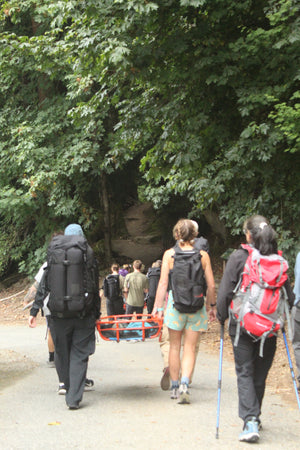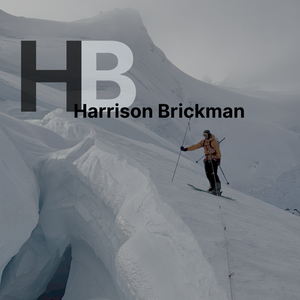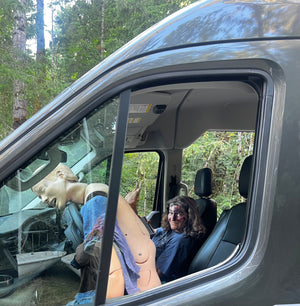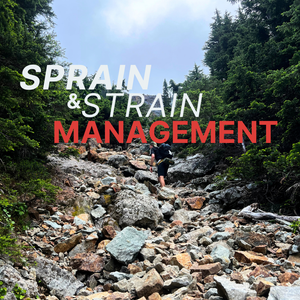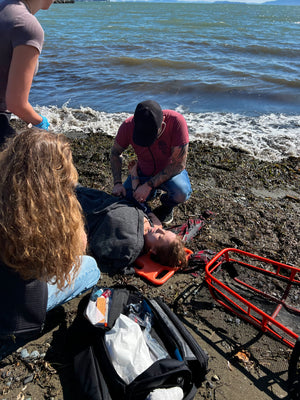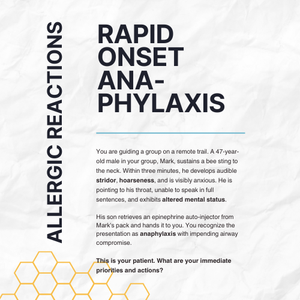North Cascades Institute - Student Guide & Logistics
This guide contains essential information to help you prepare for your upcoming course at the North Cascades Environmental Learning Center (ELC). Please review it carefully to ensure a smooth and successful training experience.
Location & Arrival
Your course will be held in the heart of the North Cascades National Park, an ideal environment for immersive, hands-on medical training.
Facility Address: North Cascades Environmental Learning Center 1940 Diablo Dam Rd, Rockport, WA 98283
Driving Directions:
From Seattle (Approx. 3 hours): Take I-5 North to Burlington (Exit 230). Follow WA-20 East (North Cascades Highway) for approximately 60 miles. Turn left onto Diablo Dam Road just before the town of Diablo. The ELC will be on your left.
From Bellingham (Approx. 1.5 - 2 hours): Take WA-11 South (Chuckanut Drive) or I-5 South to Burlington (Exit 230). Follow WA-20 East for approximately 60 miles. Turn left onto Diablo Dam Road just before the town of Diablo. The ELC will be on your left.
Transportation: Students are responsible for their own transportation. We highly recommend coordinating with classmates via the Student Portal to arrange carpools or shared rental vehicles.
Preparing for Your Stay
Weather & Environment The ELC is situated in a dynamic mountain environment. Weather can change rapidly, and you should be prepared for a wide range of conditions, including rain, wind, and cold temperatures, especially outside of the summer months.
Check the Local Forecast: Weekly Forecast for the Diablo Lake Region
Campus Facilities & Accommodations
Lodging: Course tuition includes lodging. Students will share a comfortable lodge room with one or two other participants. Each lodge includes shared, gender-specific bathrooms with private shower and toilet stalls, plus a common lounge with a small fridge and sink.
Meals: There will be three meal prepared daily, buffet-style. Our kitchen will accommodate vegetarian, vegan, pescatarian, dairy-free, egg-free, and gluten-free diets. NCI provides mini fridges, storage bins and a microwave in each lodge for those who bring their own snacks or additional food items. *Guests with more than two dietary restrictions, severe and/or life-threatening food allergies are encouraged to bring their own food as we cannot guarantee no cross-contamination.
Connectivity: Wireless internet is available across the ELC campus. There is no cell service. Payphones are available for outgoing calls. The nearest reliable cell service is in Newhalem, a 15-minute drive away.
Recreation: The campus offers direct access to Diablo Lake and an extensive network of trails for hiking and running. Remember to bring personal recreational gear to take advantage of the location.
Accessibility & Policies: The campus is ADA accessible, and service animals are welcome. Smoking is permitted only in the designated outdoor area.
Required Packing & Gear List
Proper preparation is critical for your success and comfort. Your gear will be used in realistic scenarios and exposed to the elements.
Essential Course Items
Watch with a Second Hand: Mandatory for taking patient vitals. A simple, durable watch is sufficient.
Government-Issued Photo ID: Required for check-in.
Note-Taking Materials: A waterproof notebook (e.g., "Rite in the Rain") and several pens/pencils are highly recommended.
Backpack (20-30L): To carry your gear, water, and layers to and from training sites each day.
Headlamp or Flashlight: With extra batteries. Essential for low-light scenarios.
Clothing System
You will need two distinct sets of clothing: one for scenarios and one for classroom/personal time. Scenario clothing will get dirty, stained with simulated blood, and may be damaged. Do not bring expensive items for this purpose.
1. Scenario & Field Clothing (Durable & Functional)
Sturdy Boots or Shoes (2 pairs): Closed-toe and broken-in. One pair will serve as your primary "scenario" footwear.
Durable "Scenario" Pants (2 pairs): Work pants, hiking pants, or old jeans.
"Scenario" Shirts (2-3): Long sleeves are recommended for protection.
Warm "Scenario" Mid-Layer: A fleece or hoodie you don’t mind getting dirty.
2. General & Classroom Clothing (Comfort & Layers)
Waterproof Rain Jacket & Rain Pants: Non-negotiable for this environment.
Warm Insulating Jacket: A down, synthetic puffy, or thick fleece jacket is essential for cold conditions.
Base Layers (Thermal Underwear): Both top and bottom layers are critical for staying warm during winter and shoulder-season courses.
Warm Hat (Beanie) & Gloves: Required for all seasons, but especially from October through May.
Socks: Multiple pairs of wool or synthetic hiking socks.
Comfortable Shoes: For evenings and classroom time.
Sun Protection: Sun hat, sunglasses, and sunscreen for sunny days.
Personal & Optional Items
Water Bottle (1L minimum): A reusable bottle is essential.
Personal Medications & Toiletries.
Personal First-Aid Kit: For minor needs like blisters or headaches.
Laptop or Tablet: Recommended for reviewing course materials and case studies.
Portable Power Bank: Useful for keeping devices charged in the field.
Snacks: Bring personal snacks for extra energy during long training days.
